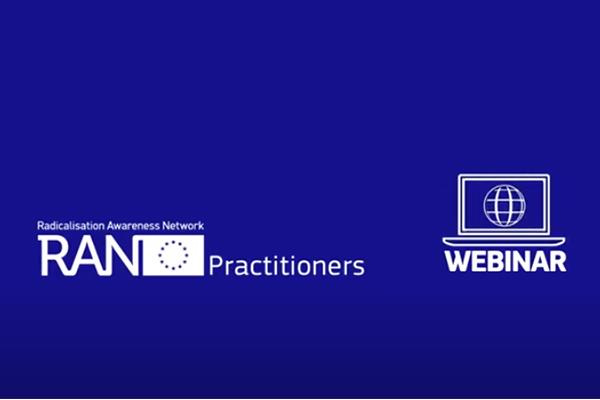
This webinar will be held in English and will take place via Webex Events. 15.00 – 16.30 (CEST)
We are pleased to invite you to the RAN Practitioners webinar on the Newest Developments of Islamist Extremism, which will take place on 10 June 2024 from 15.00 to 16.30 (CEST).
Aim and background
The fall of the Islamic State of Iraq and Syria (ISIS) in 2019 marked a significant moment in the landscape of Islamist extremism (IE). However, its demise didn't eradicate the ideology or its adherents. At the same time, the profile of extremists is shifting. We are witnessing a decentralisation of jihadist networks, the rise of lone-actors, and increased online radicalisation efforts.
The expansion of post-ISIS extremist groups, which operate more autonomously, poses a fragmented threat that is more difficult to monitor and contain. The recent resurgence of Al Qaeda has taken advantage of the power vacuum, particularly in the Sahel region of Africa, to extend its reach and influence. The attack on Crocus City Hall in Moscow by ISIS Khorasan Province showed the potential threat posed by this group, which is also reported to be active in some EU Member States, according to their services.
Online radicalisation, meanwhile, remains a significant threat, encouraging individuals to act independently, making attacks more difficult to predict and prevent. We are seeing a shift towards smaller-scale attacks, less sophisticated weaponry, and increased targeting of civilians. The recent attack in Brussels showed how isolated actors in Europe can operate, using social media to further fuel grievances and anti-Western sentiments as a response to ongoing conflicts in the Middle East, which could make diaspora communities in the EU more susceptible to radicalisation.
In addition, anti-immigrant and anti-Muslim sentiments may grow in response to perceived threats, which could create new divisions in European societies, leading to increased security challenges. The Israeli-Palestinian conflict has raised tensions, feelings and polarisation that go beyond the region and may lead to a fertile ground for Islamist sentiments.
Set-up
During this small-scale meeting, experts will discuss and exchange perspectives on newest developments of Islamist extremism and the effects on European MSs. Questions that we aim to answer during this meeting are:
- What are current developments in IE when it comes to groups, aims, modi operandi that are relevant for practitioners in the EU?
- How do IE individuals, groups and communities act to build and maintain networks, recruit people receptive/vulnerable for extremist views/behaviour? What is their call to action and how is this disseminated?
- What can practitioners do to prevent people being lured in, and what are signs of ‘new’ radicalisation?
- How might these developments and ongoing conflicts affect Europe's changing landscape, its potential for radicalisation and the future of Islamist extremism?
The webinar will start with a general introduction lecture by Tarek Kahlaoui, associate professor MSB at the South Mediterranean University Tunis, followed by a panel of EU practitioners.
The target group of this webinar are EU practitioners working in the field of P/CVE or who are working with individuals or groups vulnerable to radicalisation leading to VE.
Practical
- If you would like to attend the webinar, please register through this link.
- You will receive the Webex link to join the webinar later.
If you have any questions related to this webinar, please feel free to reach out to m [dot] vandedonk radaradvies [dot] nl (Maarten van de Donk) or arwa [dot] benahmed
radaradvies [dot] nl (Maarten van de Donk) or arwa [dot] benahmed Violence-prevention-network [dot] de (Arwa Ben Ahmed)
Violence-prevention-network [dot] de (Arwa Ben Ahmed)
Sources
Details
- Publication date
- 3 June 2024
- Author
- Directorate-General for Migration and Home Affairs
